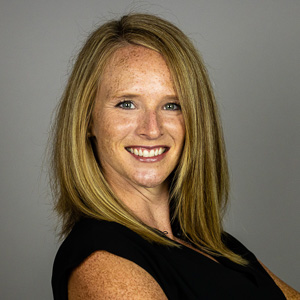Meet the Team
Ashleigh Smith, CPA
Director of Finance
Finance
Office Administration
Kitware New York
Clifton Park, NY
B.S. in Accounting
Hartwick College
Ashleigh Smith, CPA is Kitware’s director of finance and is located in Clifton Park, New York. She oversees the financial operations at Kitware, including all financial activities and staff. She also manages tax and audit compliance with various third parties and regulators. Additionally, Ashleigh has a leadership role on Kitware’s administration team and is heavily involved in facility management.
Ashleigh has led or contributed to a number of initiatives during her tenure at Kitware, including expense processing and documentation system implementations, a banking/treasury conversion, and a revised performance management process. Most recently, Ashleigh played an instrumental role in Kitware’s transition to an Employee Owned Company. She continues to lead several initiatives around efficiency, compliance, pipeline management, and employee training.
In addition to her work, Ashleigh is currently serving as the Chair of Kitware’s Employee Ownership Committee. She is also an active member of Kitware’s 401(k) committee.
Prior to joining Kitware, Ashleigh was a senior manager at BST, LLP. While there, she planned, performed, and supervised audits, serving as a leader of the firms Not for Profit Industry Services Group. She also completed internal control risk assessments, led software conversions, and conducted training sessions on technical accounting. Before that, Ashleigh served as an audit senior at Marcum & Kliegman, LLP, and as an accountant at Arthur Place & Company, P.C. For these roles, she prepared and reviewed financial statements as well as prepared tax returns.
Ashleigh received her bachelor’s degree in accounting from Hartwick College.
Awards
Women on the Rise presented by the Albany Business Review, August 2023
